Coffee isn’t just some morning ritual to drag yourself out of bed. It’s the most consumed psychoactive substance in the world, and when you use it the right way it’s a legit tool for health. The problem is that most people are drinking low-quality coffee that’s filled with junk or roasted so badly it’s doing the opposite of what they think.
But here’s what I’ve learned. When you dial it in — clean beans, fresh roast, the right timing — coffee is more than caffeine. It fuels your brain, loads you up with polyphenols, supports your liver, and even makes fasting easier.
Quick note: Some of the links in this post are affiliate links. As an Amazon Associate I earn from qualifying purchases. These are products I personally use and support, and sharing them here helps keep Paleo Palette running at no extra cost to you.

Coffee and the Brain
That first sip hits fast. Caffeine blocks adenosine, the signal that makes you feel tired, and suddenly you’re more awake and focused. But coffee is more than just a jolt of caffeine. The combination of caffeine and antioxidants is what makes it powerful. It helps with reaction time, memory, and even protects your brain long term.
We’re talking about lowering risks of things like Alzheimer’s and Parkinson’s. It’s stimulation, but with a safety net. That’s why when the coffee is clean, the focus feels smoother instead of like a crash waiting to happen. Brands like Four Sigmatic’s Mushroom Coffee or Kion Coffee are great examples of clean beans that give you steady focus without the crash.
Polyphenols: More Than Just Antioxidants
Coffee is loaded with polyphenols. Most people don’t even realize it’s one of the biggest sources in their entire diet. These compounds calm inflammation, fight oxidative stress, and even help your gut bacteria thrive.
That smooth, focused energy you feel after a really good cup of coffee isn’t just the caffeine. It’s the polyphenols working with your system instead of against it.
Coffee and the Liver
Your liver is your body’s main detox system, and coffee actually has its back. Regular coffee drinkers show lower risks of liver disease, better enzyme balance, and protection against fatty liver.
Coffee flips on certain detox pathways and helps your body clear junk more efficiently. For something most of us are already drinking, it’s crazy that it plays such a big role in keeping one of our most important organs strong.
Coffee, Intermittent Fasting, and Metabolism
This is where coffee really connects with an ancestral lifestyle. When you’re fasting, you want insulin low, you want your body to repair itself, and you want energy without breaking the fast. Black coffee checks all the boxes.
It makes fasting feel easier and boosts the benefits. Caffeine gets your body burning fat more efficiently, and it ramps up thermogenesis so you’re running hotter and cleaner. Pairing intermittent fasting with a morning cup of black coffee means sharper focus, steady energy, and better fat burning without feeling like you’re starving yourself.
Other Benefits
Coffee does more than keep you awake. It supports mood, lowers risk of depression, improves cardiovascular health, and even brings down inflammation markers. It also carries minerals like magnesium, potassium, and niacin, which most people are short on. It’s a lot more than a quick hit of energy.
What to Avoid When Buying Coffee
Not all coffee is good for you. A lot of it is basically junk fuel. Beans that aren’t organic are loaded with pesticides. Some are contaminated with mold and mycotoxins, which is what gives people jitters and crashes. Dark roasts burn off beneficial compounds. And flavored coffees or instant coffee are usually packed with artificial garbage.
What to Look For
Organic beans are always better, and single origin is even cleaner. Look for brands that actually test for mold. Medium roasts usually keep the most antioxidants while still tasting great. Freshly roasted beans will always beat something that’s been sitting on a store shelf for months.
If your body handles dairy well, adding grass-fed cream or raw milk makes coffee even better. Not only does it taste smoother, but it also helps absorb some of the fat-soluble compounds.
For me, coffee is not just a drink. It’s a tool. When it’s high quality and used with intention, it’s brain fuel, liver support, metabolic boost, and a way to make fasting easier. The key is choosing clean coffee and listening to your body.
The difference between junk coffee and clean coffee is night and day. One leaves you wired and anxious. The other leaves you sharp, focused, and steady. Pair it with sunlight in the morning, nutrient-dense food, movement, and sleep, and it becomes part of the bigger lifestyle we’re building here. Paleo isn’t about banning coffee. It’s about aligning even simple rituals like this with how your body was designed to thrive.
Sources
Ding, M. et al. “Coffee consumption and risk of chronic diseases.” NEJM (2015)
Poole, R. et al. “Coffee consumption and health: umbrella review.” BMJ (2017)
Grosso, G. et al. “Coffee, caffeine, and health outcomes.” Annual Review of Nutrition (2017)

Leave a Reply